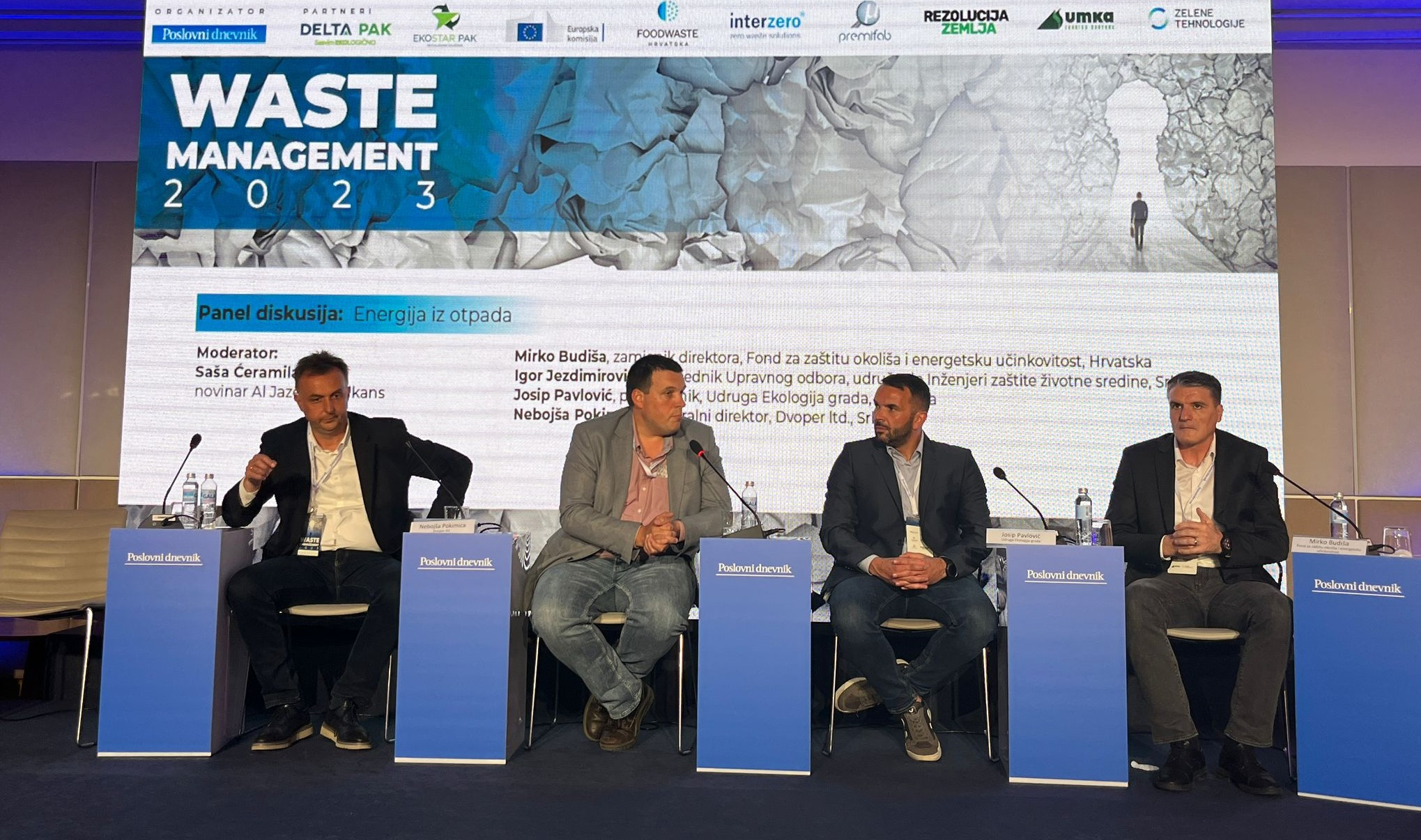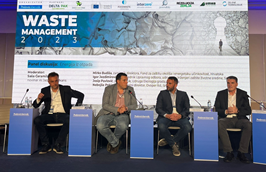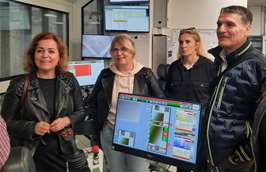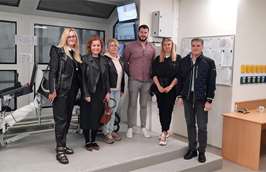16.05.2023.
Recycling and re-use of waste, as well as the use of waste as an energy source, can be economically viable, so a lot is invested in the development of innovative technologies in this field. This topic, along with environmental benefits of the circular economy, were discussed at the regional Waste Management Conference in Belgrade organised by the daily Poslovni dnevnik, with deputy director of the Fund Mirko Budiša participating as one of the panellists.In an assessment of the state of waste management in the region, deputy director Budiša pointed out that compared to the countries in the region, Croatia was the frontrunner in this field. "In recent years, significant progress has been made in the construction of municipal infrastructure, which has been helped by national funds of the Environmental Protection Fund, as well as funds available to Croatia through EU funds. Many municipal waste landfills were remediated, civic amenity sites were built, sorting and composting plants as well, and containers for separate waste collection were purchased. All this, and constant education, encourages citizens to change habits and handle waste responsibly," said deputy Budiša, pointing out that the Croatian Ministry of Economy and Sustainable Development had defined a clear implementation framework specifying the desired waste management goals.
He added that Croatia should also start thinking about energy recovery of waste. Currently, there are three waste management centres in Croatia, but the waste that remains after mechanical-biological treatment is disposed of in foreign energy plants because Croatia has no capacities of its own. "We’re paying a heavy price for the cost of SRF disposal, which others convert into energy for their needs," said Budiša. He is stated that people are suspicious of waste-to-energy power plants and believe that they produce toxic gases that are harmful to health. The reality, Budiša says, is completely different because when such plants use the best available technologies for flue gas treatment, emissions are within the legally prescribed limit values.
As part of the official visit, the delegation of the Fund also visited the energy plant of the company Beo Čista Energija in Vinča, whose construction was financed through a public-private partnership. The plant is in trial operation and will process 340,000 tons of waste annually, generating 30.24 MWh of electricity and 56.5 MWh of heating energy. The electricity produced in this way will meet the needs of 5% of households, while thermal energy will heat 10% of dwellings in Belgrade.










